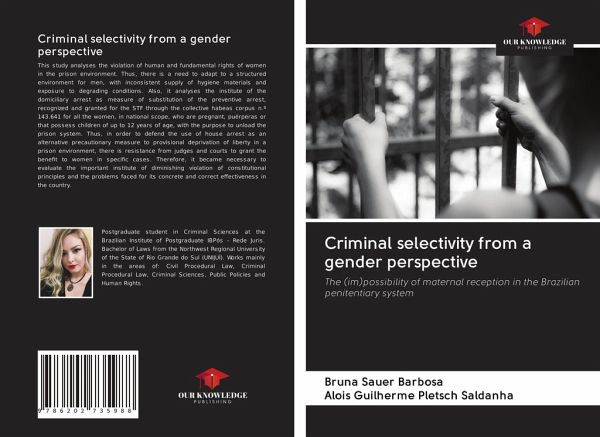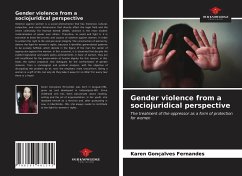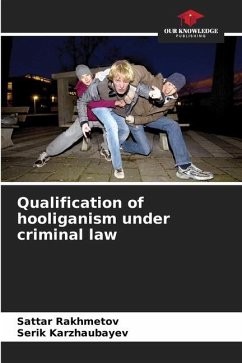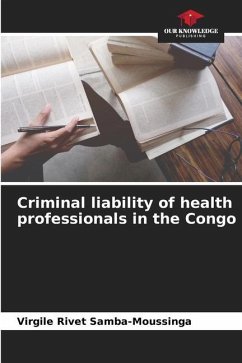
Criminal selectivity from a gender perspective
The (im)possibility of maternal reception in the Brazilian penitentiary system
Versandkostenfrei!
Versandfertig in 1-2 Wochen
25,99 €
inkl. MwSt.

PAYBACK Punkte
13 °P sammeln!
This study analyses the violation of human and fundamental rights of women in the prison environment. Thus, there is a need to adapt to a structured environment for men, with inconsistent supply of hygiene materials and exposure to degrading conditions. Also, it analyses the institute of the domiciliary arrest as measure of substitution of the preventive arrest, recognized and granted for the STF through the collective habeas corpus n.º 143.641 for all the women, in national scope, who are pregnant, puérperas or that possess children of up to 12 years of age, with the purpose to unload the p...
This study analyses the violation of human and fundamental rights of women in the prison environment. Thus, there is a need to adapt to a structured environment for men, with inconsistent supply of hygiene materials and exposure to degrading conditions. Also, it analyses the institute of the domiciliary arrest as measure of substitution of the preventive arrest, recognized and granted for the STF through the collective habeas corpus n.º 143.641 for all the women, in national scope, who are pregnant, puérperas or that possess children of up to 12 years of age, with the purpose to unload the prison system. Thus, in order to defend the use of house arrest as an alternative precautionary measure to provisional deprivation of liberty in a prison environment, there is resistance from judges and courts to grant the benefit to women in specific cases. Therefore, it became necessary to evaluate the important institute of diminishing violation of constitutional principles and the problems faced for its concrete and correct effectiveness in the country.












